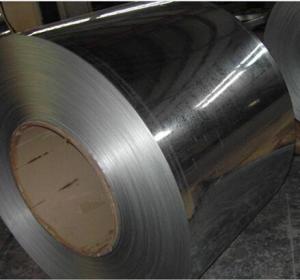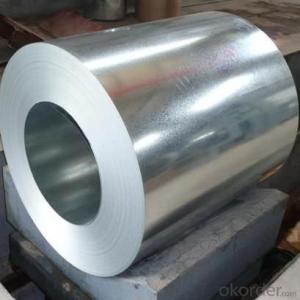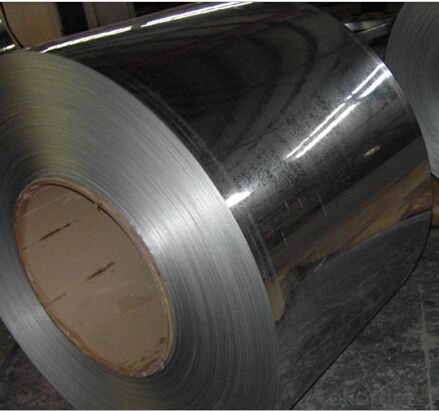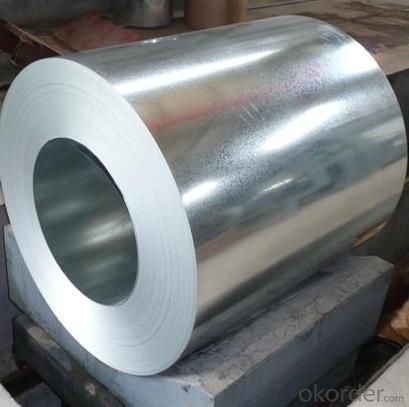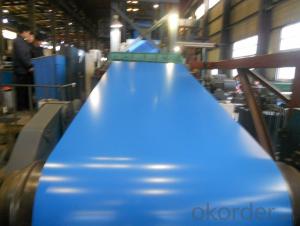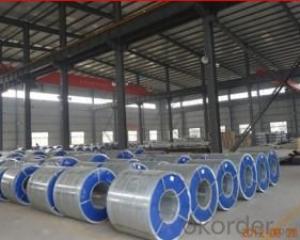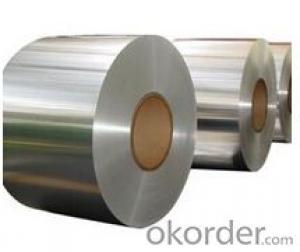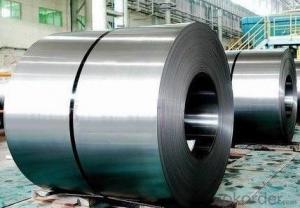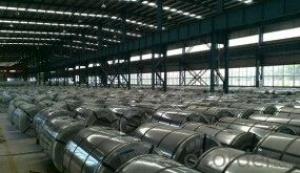Galvanized Steel for Building and Construction
- Loading Port:
- Tianjin
- Payment Terms:
- TT OR LC
- Min Order Qty:
- 50 m.t.
- Supply Capability:
- 10000 m.t./month
OKorder Service Pledge
OKorder Financial Service
You Might Also Like
Product Details
Basic Info.
Model NO.: dx51d DX52D DX53D
Standard:ASTM, JIS
Steel Grade:Q195
Certification: ISO, SGS
Surface Treatment:Galvanized
Technique:Cold Rolled
Application:Building and Construction
Edge:Mill
Stock:Not Stock
Thickness:0.16-3.0mm
Width:Upon Customr′s Requirement
Length:Upon Customr′s Requirement
Surface:Regular Spangle
Inside Diameter:508 610mm
Outside Diameter:Upon Customer′s Requirement
Packing Condition:with Wood Pattet
Sample:Available
Export Markets:Global
Additional Info.
Packing:Sea Worthy Packing
Standard:JIS 3302, EN 10142
Origin:China
HS Code:72104900
Production Capacity:300, 000tons/year
Product Description
The Feature of Galvanized Steel:
Commodity: Galvanized Steel in coil or sheet
Standard: JIS G3302 SGCC, commercial quality of the Steel base.
Thickness range of the Galvanized Steel coil: 0.14mm to 3.0mm
Zinc coating from 50-275g/m2
Tolerance of thickness of the Galvanized Steel Roll: +/-0.03mm
Width range: 700mm to 1250mm
Tolerance of width: +/-3.00mm (aiming to +/-2.00mm)
Coil weight of Galvanized Steel coil: According to Clients' requests.
Coil ID: 508 mm
Packing of Galvanized Steel coil: Seaworthy, in container
Note of the GI: Special width can be requested, the small order can be negotiated.
Package:
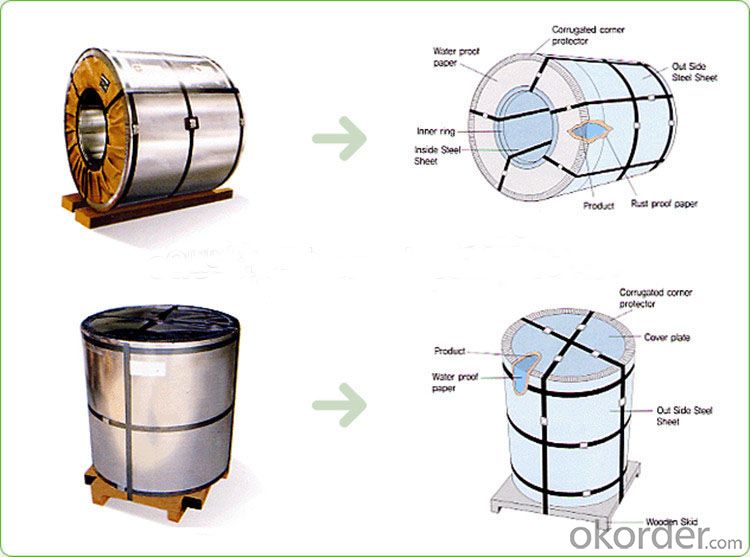
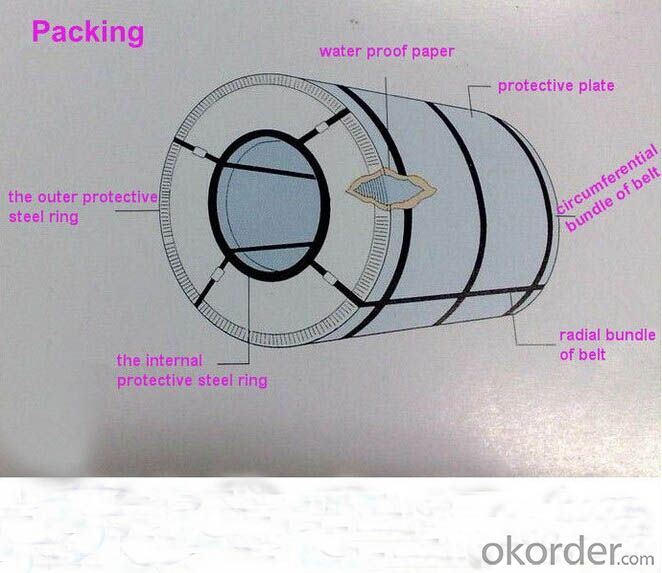
FAQ:
1. What is the minimum order quantity ?
Our MOQ is 50mt for each size. And we will consider to give more discount if you make big order like 1000 tons and more. Further more, the more appropriate payment term your offer the better price we can provide.
2. How long can we receive the product after purchase?
Usually within thirty working days after receiving buyer’s advance payment or LC. We will arrange the factory manufacturing as soon as possible. The cargo readiness usually takes 15-25 days, but the shipment will depend on the vessel situation.
3. How to guarantee the quality of the products?
We have established the international advanced quality management system,every link from raw material to final product we have strict quality test;We resolutely put an end to unqualified products flowing into the market. At the same time, we will provide necessary follow-up service assurance.
4.What is the validity of your quotation?
Normally 7 days.
5.What is your advantage?
24 hour quick response /Customer oriented/ Credit foremost/ Top quality Excellent
- Q: How are steel coils used in the manufacturing of construction scaffolding?
- Steel coils are used in the manufacturing of construction scaffolding as they are processed and formed into various structural components such as tubes, pipes, and frames. These coils are often cut, bent, and welded to create sturdy and durable scaffolding structures that can support the weight of workers and materials during construction projects.
- Q: We just installed a stainless steel electric stove, what is the best way to keep it clean and shiney?
- I have a combo of black and stainless in my kitchen; not sure which one is worse some days. For normal everyday stuff, hot, soapy (Dawn), clean dishwater and a microfiber cloth work great. For quick touch ups, a 50/50 mixture of window cleaner and rubbing alcohol also works great. The window cleaner gets the grease and the alcohol helps with streaks and makes the cleaner germ killing. Use with a microfiber cloth. For really nasty burned on stuff, I'd use a sponge with a non-stick cookware safe nylon scrub pad on it and some of the hot, soapy water. Just lay the damp sponge on the spot, let it soak a bit and see if it comes off. If not, try a little Barkeeper's Friend. Dampen, sprinkle, smear it around a little and let it soak for about 10 minutes. Then scrub with the sponge. Wipe up the residue with the microfiber cloth. The microfiber cloths are really key; they wipe more efficiently than any sponge, wipe, paper towel, dish rag. Get several and change them out frequently. You just wash and dry them; no fabric softener and you're ready to use them again. And it wouldn't hurt to keep a protective coat of a good stainless steel product on there either. That helps keep the stuff from getting such a good hold. But I've found that most of those are pretty bad at cleaning; so clean it first, then polish.
- Q: So I'm trying to decide which is better. I've always had aluminum on my 6 yr old tb gelding as I do hunters on him. He's never had steel on but I've recently moved and the shoer here is more expensive. So is aluminum really worth the extra cash to keep him light on his feet or is steel really not that much different?
- Shoes don't keep a horse light on their feet, good riding does. Aluminum bends really easily and will scratch and ruin quickly. That's why you have to have your horse shod more often with aluminum. Steel is worth it. They last longer. Personally though I think barefoot is the best option.
- Q: i have a guitar with three nylon three steel strings. Am i able to replace the nylons with steel strings?
- DO NOT PUT ACOUSTIC (steel) STRINGS ON A CLASSICAL GUITAR. Classical guitars are not built to withstand the tension of steel strings. putting steel strings on a classical guitar can cause irreparable damage to the neck, where the neck joins the body and the heel. Classical guitars have nylon strings. Yes 3 of them look like steel strings, but these are actually metal wrapped around a nylon core. Acoustic guitars are metal strings. The wound strings on an acoustic have a metal string core. Classical guitars tend to have a wider neck and are more for classical music, flamenco, finger picking, etc. Acoustic guitars can have lower tension strings put on them (e.g. martin silk and steel) as the guitar can be adjusted to take the lighter string tension placed on the neck and heel. Martin Silk and Steel Strings can also be put on a classical guitar as they have a lot lower tension than steel and they give a louder more acoustic sound.
- Q: I need help! Please help, I'm in Chemistry, and me and my friend Lucy are making a presentation on steel and iron, so how is steel manufactured? Thank you. :D
- The steel consists of ( Iron ) and another matter... but the popular one is iron+carbon / iron+silver - When iron is smelted from its ore by commercial processes, it contains more carbon than is desirable. To become steel, it must be melted and reprocessed to reduce the carbon to the correct amount, at which point other elements can be added. This liquid is then continuously cast into long slabs or cast into ingots. Approximately 96% of steel is continuously cast, while only 4% is produced as cast steel ingots. The ingots are then heated in a soaking pit and hot rolled into slabs, blooms, or billets. Slabs are hot or cold rolled into sheet metal or plates. Billets are hot or cold rolled into bars, rods, and wire. Blooms are hot or cold rolled into structural steel, such as I-beams and rails. In modern foundries these processes often occur in one assembly line, with ore coming in and finished steel coming out. Sometimes after a steel's final rolling it is heat treated for strength, however this is relatively rare.
- Q: What are the different types of steel alloys used in coils?
- Coils commonly employ various types of steel alloys, each possessing unique properties and characteristics. Some frequently used types include: 1. Carbon Steel: As the most fundamental and widely utilized steel alloy in coils, it boasts low carbon content and renowned strength and durability. Carbon steel coils find extensive application in areas demanding high strength, such as automotive parts, construction materials, and machinery components. 2. Stainless Steel: Comprising an iron, chromium, and other element alloy, stainless steel coils exhibit exceptional resistance to corrosion, formidable strength, and heat resistance properties. They are typically employed in scenarios where shielding against corrosion and staining is pivotal, such as kitchen appliances, medical equipment, and transportation components. 3. Galvanized Steel: Galvanized steel coils are formed by coating regular carbon steel with a layer of zinc, furnishing excellent corrosion resistance and safeguarding the underlying steel from rust. Commonly utilized in outdoor settings like roofing, fencing, and automotive body parts. 4. Alloy Steel: Alloy steel coils are manufactured by incorporating diverse alloying elements like manganese, nickel, chromium, or molybdenum into carbon steel, thereby enhancing the steel's strength, hardness, and wear resistance. These coils frequently find application in industries necessitating high strength and toughness, such as machinery, tools, and construction equipment manufacturing. 5. Electrical Steel: Electrically specialized steel coils are designed explicitly for employment in electrical equipment like transformers and electric motors. These coils possess low electrical resistance and high magnetic permeability, facilitating efficient electricity conduction and magnetic field generation. Typically constructed from a silicon alloy, which enhances electrical and magnetic properties. In conclusion, the selection of a steel alloy for coils hinges upon the specific requirements of the given application, encompassing factors like strength, corrosion resistance, electrical conductivity, and heat resistance.
- Q: What are the dimensions of steel coils used in the transportation equipment industry?
- The dimensions of steel coils utilized in the transportation equipment sector may differ according to specific demands and applications. Nevertheless, there exist some prevalent measurements that are extensively employed. Typically, the width of steel coils used in the transportation equipment industry ranges from 600mm to 2000mm (24 to 78 inches). This width is selected to ensure compatibility with the machinery and equipment employed in transportation, such as trucks, trailers, and railcars. The thickness of steel coils exhibits significant variation depending on the specific application and desired material strength. However, common thickness ranges for steel coils in the transportation equipment industry generally fall between 0.5mm and 6mm (0.02 to 0.24 inches). The inner diameter of steel coils utilized in the transportation equipment industry is typically standardized at either 508mm (20 inches) or 610mm (24 inches). This standardization facilitates easy handling and compatibility with industry machinery. The outer diameter of steel coils can differ depending on the coil's width and thickness. Nonetheless, typical outer diameter ranges for steel coils in the transportation equipment industry generally span from 1000mm to 2200mm (39 to 87 inches). It should be recognized that these dimensions are not fixed and can be tailored to specific requirements and applications within the transportation equipment industry.
- Q: Went to top gun range in Houston, Tx. Guy there said no steel bullets..Anyone know why? Think i can shoot them anywhere else? Perhaps an outdoor gun range? The are monarch FMJ 9mm steel rounds..Thanks!
- However, I cannot under any circumstance travel with loaded rifle magazines in my car. Those I have to load at the range because it would be illegal for me to travel to the range with loaded magazines. Even if I don't have a rifle in the car, I cannot possess loaded rifle magazines while traveling. All long guns (shotguns included) must be unloaded and secured in the vehicle, including magazines or tubes. There are several states with restrictions against traveling with loaded rifle magazines, so I'd suggest you check your state laws first, and if it is permissible in your state, then find out if the range will allow it too.
- Q: How do steel coils contribute to the manufacturing of electrical equipment?
- Due to their unique properties and versatility, steel coils play a crucial role in the manufacturing of electrical equipment. Transformer cores, essential components in electrical equipment, rely on steel coils for efficient energy transfer and reduced energy losses. The magnetic properties of steel make it an ideal material for transformer cores, allowing for the transformation of voltage levels and ensuring proper equipment functioning. In addition, steel coils are widely used in the production of motors and generators, which convert electrical energy into mechanical energy and vice versa. The coil shape of steel enables the creation of electromagnetic fields, necessary for the operation of motors and generators. Moreover, the strength and durability of steel coils enable them to withstand high temperatures and mechanical stresses commonly encountered in electrical equipment. Furthermore, steel coils are utilized in the construction of electrical conductors, including wires and cables, enabling the transmission of electricity from power sources to various electrical devices. Steel's high electrical conductivity ensures efficient power transmission, while also providing mechanical strength and protection against corrosion and wear. The coil shape of steel wires enhances their flexibility, making them suitable for various applications in electrical equipment manufacturing. Overall, steel coils make a significant contribution to the manufacturing of electrical equipment by providing the necessary magnetic properties for transformer cores, enabling the generation of electromagnetic fields in motors and generators, and facilitating efficient power transmission in electrical conductors. Their versatility, strength, and durability make them an indispensable component in the production of reliable and high-performance electrical equipment.
- Q: I would like to know the process of making steel from the mining of ore to the final product. Can anybody offer some help? Either where to look, or the process itself. I would like to have included the different options with which to make steel. Through scrap metal, or iron ore briquettes etc... Thanks.
- I believe you are asking about two vastly different processes. This is science so, if you want a specific answer, you have to ask specific questions. VERY Basically... 1) Pig iron production works by melting iron and pouring it into molds that produce ingots called pigs. 2) fraction distillation separates different substances (typically starting in liquid form) by controlled heating so, since different substances boil at different temperatures, the vapors can be captured selectively.
Send your message to us
Galvanized Steel for Building and Construction
- Loading Port:
- Tianjin
- Payment Terms:
- TT OR LC
- Min Order Qty:
- 50 m.t.
- Supply Capability:
- 10000 m.t./month
OKorder Service Pledge
OKorder Financial Service
Similar products
Hot products
Hot Searches
Related keywords
